|
Oh my how to even start to describe the incredible, tumultuous mix of emotions, the most terrifying and miraculous experiences that have just befallen me during my first attempt at using the India railways. Well I guess the only thing to do is start at the beginning and let the facts fold out from there.
I arrived in Jammu today from Srinigar, by jeep. The journey itself was pretty exciting and stomach turning as our driver seemed to have a death wish and would swerve insanely around cars and large trucks, ever pushing forward faster faster around the already very windy mountain road. Luckily I had popped two anti-nausea pills early in the journey, and I sat in the front single seat, so I managed to avoid getting sick. But the pills did nothing to keep me from seeing, in full front seat view, the narrow misses and brushes with death that our kind driver kept putting us into and then deftly pulling us out of. Over the course of the nine hour drive I began to bore of the same Hindi CD playing and offered to plug some of my music into the usb port on the stereo. While none of my music went over terribly well with the other passengers or the driver, it started some of the other passengers sharing their music which got me talking to the three brothers in back. When we arrived in Jammu these brothers offered to split a rickshaw taxi to the Railway station with me, an offer which I gladly accepted as the extra protection and their fluency in Hindu would make the trip much easier. Now I should mention that the rickshaw taxis in India are very tiny; they are like tin golf carts with only one small bench seat in the back. However, despite this, three full grown young men and I, plus all our baggage managed to squeeze into one rickshaw taxi. One brother sat in front with the driver, some bags were shoved behind the bench seat in back and I sat on the bench seat with a brother on either side and my backpack bag on our laps. At one point the taxi pulled into a lot that looked like hell. Trash was strewn everywhere, some piles were burning. There were cows and dogs milling around the piles and there were hundreds upon hundreds of people existing in a slum-like state. It was at this point that the rickshaw stopped and announced we had arrived at the railway station. “Here?!” I thought, “Where the hell are the trains, the cues, the ticket counters?” To make matters worse, I found out at this point that the brothers’ train wasn’t leaving until the next day and thus we had to part ways. So there went my protection. I lifted my eyes to the smoky mess of the slum lot and asked, my voice trembling with trepidation, how to get to the station. The driver motioned that the station was just up some stairs a little ways off. So, heart hammering in my chest, I gathered up my bags, shook hands with each of the three brothers and marched off in the direction of the station. Now I was fully a single woman traveling alone in very strange and different waters. But I planted one foot in front of the other and walked up those stairs with as much gusto as I could muster, feeling the weight of my situation pull heavier and heavier on me with each step. While standing at the entrance of the station in utter confusion, walking with the mass of people pushing through security, wandering the crammed station corridors looking for a damn ticket counter, this weight became a swirling thunder, a tornado spiraling in my head. Finally I gave up and walked back out of the station and over to the second class ticket booking counter I saw outside the station on my way in earlier. On my way over I noticed that the tourist reception counter was just next to the second class ticket counter and hesitated for a moment before continuing on to the second class ticket counter. I’d had enough of tourist agencies and their massively inflated prices and while this counter might not give inflated prices, I didn’t want to risk it. At the second class ticket counter I told the man my destination and he quoted me 155 rupees, or about $3. This price seemed absurdly low for a second class ticket, which is just one notch below the top class, but I didn’t argue or ask for clarification and instead simply took the print-out he handed me and waltzed off to the platform. Once settled at a good spot to wait for my train, I took out my print out and my confidence started to wane. Nowhere on my “ticket” was there a train number printed, nor any time of departure, or, most importantly, a seat number. I began searching faces for ones that looked like they belonged to someone who spoke English. Some women across from me were staring at me unabashedly so I decided to start with them, but no, none of them spoke a lick of English. In fact, I found out later, they were illiterate. The women sitting just next to me perked up and one of them asked “Can I help you?” “Yes please!” I replied. “Can you explain my ticket for me?” She scanned the small slip with a furrowed brow and announced that she didn’t know enough about the trains and train tickets but that her brother could help and he would be back in a few minutes. Lovely. When her brother returned he looked at print out and told me that it wasn’t a reservation ticket but rather a general ticket referred to as a non-reservation. There are two non-reservation cars per train, one at the front and one at the back, and in these cars people are crammed in like cattle. Sometimes there is only room to stand, and you must travel like this through the night. This obviously wouldn’t do so this nice man, whose English nick-name is Ricky, took me to the counter where I could make my reservation. Once there I found out that all the seats for the train I wanted to Agra were sold out. Now my pulse really started to quicken and my mind began spiraling into panic. The thought of going back out of the station, now at night, through the slum lot of burning trash and hoards of people, to find a rickshaw who could take me. . . where? I have no names of any guest houses in Jammu, no idea of where to go. Noticing my increasing unease, Ricky motioned for me to sit down on a near-by chair. He sat down next to me and, after a moment’s silence, said “Why don’t you come with my family? Buy a reservation ticket for sleeper class and come to our town. It is in the same state as Agra and it wouldn’t be hard to travel to Agra from there.” At this I was overcome with relief and gratitude. Guilt managed to creep in there too and I told Ricky I was so sorry my stupidity might make me interfere with his and his family’s travel plans or that I might be an inconvenience but he simply waved off my guilt like passed gas. “Don’t worry. You are our guest. We would be happy to have you.” As he got up to find me another ticket form, tears sprang up in my eyes. I felt so much gratitude for this human, and the millions like him across the world who genuinely care for others and live selflessly. So much gratitude filled my heart that it came spilling over every side and came flowing from my eyes. I quickly bit back my tears however, embarrassed to seen so emotional, and went about the business of buying another ticket. Thankfully there was a seat available for me. I could have kissed the ticket slip. This one clearly printed the train number, carriage number and seat number showing that I definitely had a spot on this train. Glory be! Ricky and I went back to the spot where his sister, Rosie, their mother and auntie were seated watching over all our bags. Ricky told them about my situation and his offer and they quickly opened up their little circle to me. They laid down a second blanket on which to sit, and their auntie began serving out dinner, including a portion set out for me. And like that, I was a part of the family. If the sky wasn’t a filthy dusty oil streaked railway station ceiling, I would have floated up and kissed it. In a few short minutes I had gone from being a doomed target on the dark streets of Jammu to an adopted member of an Indian family; happily eating delicious mixed vegetable curry and chipati bread next to people I did not know but who cared for me just the same. The incredible tumble of emotions pounding through me threatened to push more tears from my eyes; gratitude swelled within me with each scrumptious bite and I was in awe of the happiness and beauty in this small family gathering on the railway station floor. The two aunties and the brother and sister cracked joke after joke and together they laughed and laughed, their laughter bubbling like water in a mountain stream. But instead of being frozen and overwhelmed by my incredible dumb luck, I instead involved myself in learning about my new family. I spoke with Rosie, the young woman who first asked me if I needed help, and though her English was far from perfect we managed to talk about such profound subjects as her lack of belief in Indian marriage (due to the sheer number of spousal abuse cases she knows about), the cultural shortcomings of the USA and the infuriating way in which the government has fractured my pride in being a US citizen. We discussed the massive societal and cultural problem in India of discrimination against women, and the general closed-mindedness that pervades Indian society. We even talked about our dreams and plans for the future. She wants to be an actress and plans to fund her art by teaching. I told her how I hope to be a professional dancer and will fund my art through healing work and teaching yoga. I found out later by looking at our train tickets that we are the same age too! Both of us are 24, unmarried with no kids, but living in two completely different worlds, hers far more challenging and oppressive than mine. Rosie also helped me begin a new Hindi translating guide in my notebook. The first things she had me jot down were “Hello!”(Namaste), “How are you?” (Toum ke say ho?) and “Can you help me?” (Qui-a-ahpu maidee madate karengay?). Next, at my request, came how to say delicious (swadist) , beautiful (sunder) and very beautiful (bohor sunder). Rather than barrage her with endless questions I left it at that for the time being, but throughout the evening, while talking to Ricky or Rosie, I would ask for translations and scribble them down. Soon I had filled a page with useful tid-bits like “I’m fine” (mei theek hu), “My name is Erin” (Mei-ra naam Erin heh), “Thank you” (sou-kria), and “Yes” (Haan-ji). At one point Ricky informed me, laughing, that auntie Chitra likes me and wants to take me home for a few days. My hands flew into prayer position at my chest as I exclaimed “Yes please! I would be so honored!” So after a bone rattling night in the sleeper class of the train, I was taken to the house of Chitra nad her husband Yogandra, who are distant relatives of Ricky but whom he still calls auntie and uncle. Still feeling foggy from a less than restful sleep and a bit confused as to just how I came to be adopted into an Indian family, I tottered after the round colorful shapes of the two aunties and the slim forms of the brother and sister, up and over the railway tracks and to the waiting car of their uncle. In the following day I would be fed delicious home cooked Indian food, introduced to friends of Chitra and Yogandra, all eager to meet the stranger from afar, and treated like an honored guest and member of the family. I offered to help Chitra in anyway possible, so at one point I helped her roll chipatis in the kitchen, a task that proved rather difficult for my inexperienced hands. I also did the dishes once with Chitra standing by nervously. I could tell she preferred to do them herself so from then on I simply did my best at keeping my things in order and being a courteous guest. Chitra and her husband spoke basically no English so my Hindi improved quickly. Ricky taught me some crucial phrases before he left for the night such as “I am hungry” (Mu-je bhook lagi-heh) “what is this?” (ye kia heh?) and “I want to sleep” (Mei sona cha-tee ho). The next day Ricky took me over to another house to stay, this one belonging to a direct aunt of his. It was in the neighboring town of Meerut, a short 30 minute bus ride away. Here the energy was much more youthful, lively and relaxed as this aunt had two children who were still young and at home. (Chitra’s children were grown and both studying toward college degrees in Mumbai and Delhi.) For the two days my face was stuffed with more delicious home cooked Indian food and sweet chai tea with biscuits and I met many friends and family. Often cousins of Ricky, who were in college and had studied English sufficiently, would call him and ask to speak to me. One time however, I was handed the phone when a relative who could not speak any English called and asked to speak to me. After saying “Hello!” and “Namaste!” a few times and the little tid bits I could manage in Hindi such as “Toum ke say ho?” and “Mei teek hu”, there was little we could do but laugh and sit in awkward silence before I handed the phone back to auntie. The one great frustration with staying with this family was that I could not leave the house at will. Meerut is not a very prosperous city and is in fact renowned for crime. Not to mention it is far off the tourist map and here I stand out even more than I would in more touristic areas. Add to that a small dash of the Indian sentiment that women should always be in the company of a man and you have me pretty well pinned to the couch. So instead I bided my time by doing yoga and practicing hula hoop on the roof and fantasizing about the next mouthwatering Indian meal that would be placed in front of me in another few hours. All in all it was an utter blessing and dream come true to stay with an Indian family and witness Indian culture from the inside out. I have a few ideas of how I will attempt to repay their great kindness and hospitality upon my return to the US. And perhaps one day, a member of this family might come to California and if they do, they will have a family with open welcoming arms waiting for them.
3 Comments
The last few days, while taking paddle boat trips on the lake, it has finally begun to sink in just how incredibly lucky I am to have been able to come visit this village in Kashmir. This feeling set into place with a satisfying click today while I glided over clouds and lily pads resting on the perfect mirror surface of the lake. The quiet and beauty one feels on this still and endless body of water are beyond measure. When you listen closely, you can hear wisdom of water ring clear all around you; from the physics of ripples, to the flowing frictionless surface, to the random yet synchronized dance of lily pads and crystalline clouds. Sitting so close to its surface and paddling gently, rhythmically, my mind softens and becomes still as the water. The lake is so clear that, peering into that other relm, as I slip by silently above, I can see both the red, coiling, roots of the lily bellow, her graceful green pads floating on the surface, and the reflected arching sky above all in one frame.
Then looking up one sees the towering mountains, shroud in a fine mist, which boarder the lake on three sides. Above them the sky is a misty blue and, near sunset, is strewn with a thousand thin cirrus clouds, skipping like ripples across the heavens. The villages scattered throughout the marshy waters of the lake’s interior are a far cry from anything I have ever known or seen. The “roads” are all water ways; some high trafficked canals are clear while the lesser used pathways are thick with tiny floating plants making a green carpet and the illusion of land. Everyone travels by boat, and all the boats are powered by paddle. Even small children carry their own little paddles, though how much paddling they actually do remains a mystery. Still it’s a sight so unbearably cute, these small children with tiny hands wrapped around miniature paddles, it makes me want to stop everything and snap a thousand pictures. The houses, perched on small patches of land, are a shoddy mess of wood, sheet metal and brick. Sometimes they are painted, but are often just raw materials patched crudely together. Still there is a distinct charm to the way the buildings look, raw and earthen, tucked between trees and vegetable patches and rising out of the water, reflected in its surface. Some stretches of water way are indeed magical, passing below weeping willows and bridges laced with bright green moss and climbing vines, the small floating plants speckling the dark water like stars in an inky sky. Some families keep chickens, goats or sheep on their plots of land and ducks are a constant feature along the canals, constantly scavenging the shallows for food. Men are seen out in the lotus fields, perched on the bow of long narrow boats, expertly harvesting the delicate and prized lotus root. They use a long rod with a hook on one end which they hammer repeatedly into the lake floor, to loosen the dirt and pull up the roots. They later bundle the roots for sale using palm leaves to tie them together. The women, in contrast, work to harvest the lily plants which are sold in the market and used to feed livestock, especially animals that are milked as the plants are supposed to support good milk production. These women also work from the bow of the long thin boats, piling the lily plants high behind them, in the belly of the boat. Paddling along between the lotus and lily fields many birds can be seen circling the skies. Quite often one sees the large imposing silhouette of the eagle circling above. If you’re lucky you might see him pause his scouring of the sky to rest regally on a wooden post nearby. Smaller water fowl scamper along the water’s surface, scurrying along on the lily pads, stopping to swim only when the vegetation thins. One can often see the brilliant blue or the white and black spotted Kingfisher, master of his trade, flying swiftly above, hovering in place for a few crucial moments before rocketing down into the water to catch his next meal. Crows are also a common sight in the skies, their dark forms swooping low to rest on roof tops or fence posts. These crows have adapted for the frigid winters here and sport fluffy grey ruffs around their neck. Despite the constant twittering and flight of the birds the lake maintains a beautiful stillness that infuses my consciousness. The pace of life here is slow and deliberate, like the even measured rhythm of paddle strokes. Despite the hardships of poverty, the people here live and move by this pace and it is distinctly felt while watching them work and live and while gliding through their world. Landing in India is like landing in a dream; it’s hard to know what is real and what isn’t. But this sensation takes a day or so to set in. My story begins before that. It begins when I was to be reborn in India with shaved head, done at my own hands. I had decided a few months previous that I would shave my head in India. Many people, when told this, feel compelled to ask “WHY? Why would you do such a thing?” To this I have many answers. For one, I’ve wanted to shave my head at least once in this life as sort of a bucket list item. But on a deeper level, I wanted to come into India as a new born, with eyes open and new. I wanted to be as a child here, eager to learn and discover, and open to all that I see. I also wanted to remove vanity from my time in India. I sent home all my makeup (except the glitter, of course, which I’m saving for when I teach hoop at a circus school in Nepal. Why glitter is important in hoopdance is obvious and a silly question I won't take time to address.) and I’ve resolved not to pluck my eye brows or shave. I want to be serious in my yoga studies, meditation and devotion while I am here, and to remind myself of this, I see my shaved head each day in the mirror.
The very first thing I set about doing, after checking into my hotel, was to finally do what I had decided I would do several months previous. I would shave my head, by myself, if I had to. Earlier that day while still in Cambodia, I set out to find a set of clippers so I could do the job myself if need be. I managed to find some clippers and now, safely deposited in my New Delhi hotel, I pulled out the buzzer, clipped on the proper guard, and pulled a large bucket underneath the mirror. Before beginning I took a few final photos of my hair, a last goodbye before it disappeared for the next few months. I gave myself a good long stare in the mirror and then broke into a huge smile and stretch, reaching my arms far into the air and back, as if I wished to hug the whole world and all of its inexplicable strangeness. Because, despite all those reasons above, I still do not fully know why I must shave my head, I just know I must and thus I stopped asking myself bottomless questions and accepted that not all can be explained. I plugged in the buzzer, dipped my head over the bucket and flipped the switch. . . Nothing happened except a low “mmmmrrrrrr” sound. The blades did not move. “Fuck,” I thought to myself. I tried plugging into a different socket. Nothing. I tried moving the lever arm which shifts the position of the blades. Nothing. I waited and thought for a few moments, directing some carefully chosen telepathic words to the stubborn buzzer. I tried a few more times to turn it on. Nope. Nada. Not happening. “Well shit,” I thought “I guess perhaps I was not supposed to shave my head in India after all.” And on this puzzling note, I went to bed. In the morning I woke up with renewed vigor to tackle this darn buzzer problem. I took out the kit with all the accessories and examined each one. I came across a small bottle of oil and an idea struck me. I took the oil, clipped off the tip and dripped a few drops onto the blades. I then took the small brush which came in the kit and spread the oil between the blades on all sides. Satisfied all the oil was spread out, I plugged in the buzzer and flipped the switch. “BRRRRSSSSSOOWWWW” the buzzer declared triumphantly. “YES!!!” I shouted to the mirror. “Now we can get on with this.” Holding the buzzing buzzer poised at my temple, I gave myself one more appraising look. “This might be harder than you expected,” I say to myself. “Fuck it,” I say back “let’s do it.” Half an hour later, I’m looking at a new face in the mirror. Not all the hair is even, and I messed up the back when I took off the guard, forgot, and then went even out the hair at the base of my head. This left a few run-way like stripes before I realized what I had done. At this point I swore loudly and started working on blending the every short areas with the slightly longer areas, using my camera as an extra mirror so I could see what I was doing back there. Something about my face looks more elegant and severe. I’m hypnotized by my own new visage and take far too many photos trying to document what I see. So much for avoiding vanity. Still I can’t help but fell exhilarated and refreshed. I take shower, running my hands over my prickly yet silken soft scalp over and over again, somehow still incredulous that it’s gone, my hair is no more. ------------------------------------------------------------------------------------------ So far my time in India has gone rather smoothly but I can feel this place has its suckers on me, holding me still and extracting all the money it can before letting me go. I let my money go too easily, unsure, naive in this new foreign place. Ever since my first taxi cab ride yesterday morning which plopped me off at the Government Tourist Agency, I have been caught up in a tide, rolling along the gushing flow of money draining from my pockets. Sure they have been wonderful to me, treating me like a queen, driving me around New Delhi and watering me with cups of chai. They have invited me into their home to eat beside them and relax in front of the TV with them before letting me sleep on their queen size guest bed. But still, I can sense the dark greed lapping at their heels. Yes, my host was exceedingly helpful last night in planning my trip itinerary so as to make the most of my time here and to ensure I book my train tickets early so as to not get stranded in one place for too long. But how much of this helpfulness came from good will and how much came from the unrestrained desire to squeeze dollars from my pocket? At one point he got on the phone to make my reservations but he spoke to the person on the other end in English, and the buttons and screen on his phone were dark. I had the distinct impression that he wasn’t talking to anyone on the other end. After he hung up (a movement which caused his phone to light up suspiciously) I asked him why he had spoken to the person on the other end in English. He hesitated for a moment before replying that it was so that I could understand what he was saying, but why should I need to understand? I understand he is making my booking, that is enough, I do not need to know every word he says. I was unsatisfied but had nothing more to say short of accusing him of faking this phone call, which I could not do seeing as how generous of a host he was, so I kept my lips shut. This morning when I could not give him cash for the reservations he asked for an advance of $100. As I only had $90 on me, I reluctantly gave him all my US dollars. Before he left me to have his driver shuttle me to the Airport to catch my flight up north, I had him scribble a note of the advance on my receipt but even this feels like a feeble effort to validate my submission of handing over the money. Money money money. Here I am, in beautiful India, about to gaze upon the Himalayas for the first time and all I can do is gripe about money. Ok, so I might be getting stiffed. It is my first time in India and I do not know how to avoid these things yet. I must be patient and talk to more travelers, get more information and advice before I can expect to know better. ------------------------------------------------------------------------------------------ Still this dreamlike state continues. In the plane ride my mind is clouded by the dark stories brewing in the compelling novel that has me spellbound “The Space Between Us”. My mood is further fowled when I retrieve my bags off the belt only to find my hula hoops have been bent. This might seem like folly to get worked up over but these instruments are like brushes for a painter: break them in half and the art is so much harder to produce. In my art, my hoop dance, the magic I weave arises from the manipulation of a perfect circle. Even a small dent in this circle, rendering it into a slight tear shape, makes it so much harder to weave the same magic. So I cursed, too loud, and threw them on the ground, cursing several more times, but quieter and under my breath. I knew there was no one to whom I could complain and what difference would it make anyways? The damage was done and no airport official would give a hoot about my stupid hoops, a child’s toy. So I just had to bottle up my anger and stuff it deep down. My anger quickly melted, however, when I stepped out into the sun and was greeted by my new host, the manager of the guest house where I will be staying. His name is Ash and his face was warm and softened by a distinct kindness. The first thing he said to me after calling me by name was that I appeared to him in a dream, with my eye brown ring and the color and shine of my eyes. What a bizarre and yet beautiful thing to say. I liked him instantly and could tell he was a spiritual man. I lifted my gaze from this man and noticed the crisp stillness of the air and its clear coolness against my skin. The sun was positively beaming down, bouncing brightly off every white car and wall. Even the sounds were clearer, more sharp and crisp. It was the silence between each sound that created its definition. There is no silence in Delhi, one quickly realizes. The sounds in Delhi are like liquid, all flowing into one another, creating a sound-scape that is like a crowded fish tank, full to the brim and teeming with frequencies. But here, I could hear every rustle of fabric as I took off my bag and shoved it in the back seat of the car. I could hear the shuffling of feet against the pavement 30 feet away. Each sound stood out like a gem and rang clear as a bell. I stood for a moment, awestruck, and wondered, not for the first time since I arrived in India, whether or not I had landed in a dream, whether what I was experiencing was real. We are driving into town from the airport now and I am overwhelmed by everything I wish to capture, in words and in my camera. The people and the buildings are so different here. The women and men dress more warmly and in a more middle-eastern style. Many more women wear the head scarf and men wear white skull caps or short cylindrical caps. The men wear long flowing garb, a heavy baggy poncho like garment, and loose pants beneath while the women wear the usual splash of colorful sari’s and Punjabi’s but with extra sweaters and scarves for warmth. (The Punjabi is another traditional Indian dress that consists of a long tunic like dress worn over billowing loose pants which close at the ankle, and a long scarf which is draped around the front of the neck and falls behind each shoulder.) The buildings look more European with painted window panes and tipped roof tops. The leaves on the trees are turning from green into yellow, yellow into orange, the sign that is fall here. The yellow leaves stand out like lights against the sheer blue sky. Other trees sport bright orange leaves, maple I think, and still others look like the trees in DC, tall, erect and stripped of all leaves. Winding through this small city are many canals which serve to amplify the colors of the trees and painted boats by multiplying each image in the rippling reflections. We travel down a street running alongside a large lake, along whose shore rests hundreds of colorful painted boats, long and wooden with cozy bench seating. The seats are long and reclining and adorned with patterned fabric and cushions. It is into one of such boats that I am led and soon we are off, paddling across the lake. All along the opposite shore are endless house boats which serve as hotels on the lake during the busy tourist season in the summer. Each hotel is decorated with fine lattice wood work and boasts a large sign declaring some ridiculously pompous name such as “New Panama”, “New Taj Mahal”, or “Crystal Palace.” One apparently belongs to me as it is named “Top Erin Deluxe.” As we continue to paddle farther across the lake I am struck with the strangest sense of Déjà vu. Suddenly I am entering another floating village, spookily similar to the one I had visited just days previous, worlds away in Cambodia. There are floating stores selling food wares and water. Others sell clothing or craft wares. And running between these stores is a traffic of boats, large and small, all powered by paddle and thankfully not noisy stinky engines. Boat drivers and store keepers all call out hello to each other and joke playfully before continuing on their way demonstrating the easy camaraderie and familiarity between all the men. I have stumbled my way into yet another floating village except this one exists at the foot of majestic mountains which tower out of the mists and ripple in reflections on the lake; this one lives in the far north of India where the culture and the language is a blend of Indian, Pakistani, Nepalese and countless others; this time, instead of merely passing through and snapping photos of the village, I will be living in it. Upon arriving at my host’s abode, I quickly realized that though I am not the first traveler to pay to stay here, this certainly is not a guest house in the usual sense of the word. I am staying in the family’s house (though to be fair I had the option to stay out in the floating boat hotel out front but refused, preferring instead to skirt loneliness and stay closer to the family) and am waited on hand and foot by their kindly, yet quirky servant Monzouri. Also living in this house is the warm and smiling Mama Hassina, the two daughters Sofina, who is about to finish her degree in Business communications, and a younger daughter who’s name escapes me, as well as the elderly Abdul, and Ash, my host. I have a bright sunny room all to myself, which was further brightened by the colorful vase of flowers Mama Hassina brought up for me yesterday. The flowers are from the garden outside where dormant roses line the lawn but other flower bushes, scattered here and there, are in full bloom. It’s quite cold here, even within the house I can see my breath, and I am cursing my veneurable shaved head. The large poncho they provided me is a saving grace, as are the “winter wife” heaters they keep close when sitting. The heaters are wicker baskets with clay pots inside. The clay pots hold coals and, when, stirred with the metal spoon attached to the basket, emit a wonderful glowing heat. To keep warm, one holds a winter wife under the poncho and sits with it close by, holding ones’ hands over the wicker handle to warm them. To keep my head warm I wear a scarf wrapped around it and this does the trick just fine. Though I have been enjoying my time here thus far, watching everything with eyes wide as a child’s, yesterday culture shock hit me like a kick to the stomach. I went for a walk through the town with Abdul and the intensity of the small city and its crowded trafficked streets was overwhelming. Gone was that initial stillness and quiet I had felt in the Airport parking lot. Instead a rushing pulse, like the one I felt in Delhi, courses through the streets. Everywhere I looked my eyes met foreign sights: strange street foods, unfamiliar dark faces pressing past, crowded shops whose merchandise was spilling out into the cramped walkways. I finally felt the cloud of that elusive sensation I for which had braced myself my whole trip but had not felt in full force until this moment. “So this is culture shock,” I thought to myself. In need to talk to someone or something, I whipped out my note pad and scribbled down my thoughts: “I’m having a hard time engaging my surroundings. Everything feels strangely unreal, like I could pull back a curtain and discover a world closer to what I’m used to. Everything, the faces, the dress, the streets and buildings, the language and the eyes upon me, everything feels profoundly different. The pace of the small city here leaves me breathless and seeking a familiar face, or even just a familiar language in which I can confide my inner turmoil.” I wrote this while sitting in the watch shop of one of Abdul’s friends, a kind and large man who quickly offered me tea and biscuits while one of his shop keepers ran out to fetch a power converter for my camera battery charger. The people I meet are always so hospitable and generous, and genuinely interested in where I came from and how I came to visit their removed little city of the North. It is not the kindness of these strangers that is bothering me, but it is rather the simple fact that I am among strangers which has me in a somber and pensive mood today. Later on while sitting with Abdul in very tiny café (so tiny that I had to share my small bench seat with a plump woman eating the lunch they serve), while eating vegetable samosas with tea, more words were eager to tumble out of my mind, through the pen and onto paper: “It’s the eyes that really get me; soft, dark and bottomless, these eyes, hungry with curiosity. Sometimes they belong to a strikingly handsome face and it takes some will power not to return such a powerful gaze. It also kills me how silly I feel under their scrutinizing stares as they scan my hodge-podg mess of patterns and garments that are foreign and wrong. I want so forcibly to wear the traditional dress and hide my pale skin and foreign face behind the cover of the head scarf. Shanti Shanti, they always say. Slowly slowly, in time.” So I breathe patience; patience that I might get used to the stark class difference in the home between servant and resident; that I might get used to being waited on like a princess, a hot water bottle ready in my bed at night and tea and food prepared for me. Patience that the faces will soften with familiarity, that the streets will not seem so claustrophobic, and that living in the middle of a lake where a boat ride past floating stores and houses is the only way to get out to the city, might not seem so bizarre in another few days. Shanti, shanti. Slowly, slowly and in due time. Right now is the month of the lantern lighting festival in Chiang Mai, known as Yi Peng or Loi Krathong. It’s a spectacle so popular that a photo of it graces the cover of the most recent addition of the French Lonely Planet Thaïlande guide book. I will not be in Chiang Mai for the festival date itself, which falls on November 10th, one day after my flight departs from Bangkok to New Delhi, but I was able to attend the opening night’s ceremony at a university campus just outside of town. I rented a motorbike for the occasion and motored out to Mae Jong University with two of my friends from my guest house. We took a rather winding, circuitous if scenic route out there but still arrived with plenty of time to enjoy a relaxed meal, sitting beside the canal which ran alongside the path to the University campus.
Everywhere were stalls selling food, drinks, desserts, toys, and stacks upon stacks of white lanterns. Of course none of the patrons of such stalls made any mention of the fact that these lanterns were not allowed on the University campus. No, all the tourists had to find this out for themselves when, upon reaching the gates, they were told their lanterns must stay outside, and once inside, only the event-sanctioned lanterns could be purchased (for triple the price of those outside). But locals and tourists alike put away their grumblings and willingly purchased the $3 event sanctioned lanterns because this is still a very small price to pay for what will certainly be a most memorable experience. As dusk approached we made our way onto the campus grounds along with the pressing tide of thousands of other participants, stopping briefly to purchase our $3 lantern. At last we arrived at the sloping lawn where everyone was gathering and settling onto the grass. Spaced evenly throughout the lawn were unlit candle lamp posts for lighting the lanterns later on. We sat next to one post that wasn’t yet claimed and waited eagerly for the ceremony to begin. However, once the prayers and chanting of the ceremony did commence our eagerness gradually faded to boredom as the prayers stretched on and on for an eternity. One of my companions and I found ourselves slumping closer and closer to horizontal, until finally we both took a small snooze for a spell. We arose briefly for the taunting excitement of lighting the candle lamp posts. But no, it wasn’t yet time to light the lanterns. Still the lamps created a beautiful warm glow across the grass, illuminating all the participants, their families and friends, everyone’s faces shining, full of eager anticipation. Before we were to light the lanterns we first were to sit in a communal meditation to the beautifully haunting sound of chanting by a head monk. During the meditation the monk’s soothing chant easily quieted the mind, but perhaps a bit too easily as again I found myself drifting rather than focusing on my breath. After a second eternity had passed we were finally called to stand and unfold our paper lanterns. In another few moments the call came for everyone to light their lanterns. All around us, tall glowing white paper columns started mushrooming up out of the air. To light the lantern, one must first unfold the paper and extend it to its full length. Then, careful not to light the wispy thin tissue paper, one lights the coil of fuel soaked paper at the open end. And now you wait for the hot air of the burning paper to inflate the lantern to its full height and girth. These lanterns were perhaps a meter or more tall and about a half meter across so you can imagine the bizarre sight as you look around and see nothing but massive glowing marshmallows interspersed with people carefully tending to their glowing puffed marshmallow. A moment of silence fell as we were called to raise up our lantern but hold still and wait for the signal. “What signal??” I kept thinking. “How will we know?” Then all at once there came a massive “BANG!” Before I could regain my senses a second huge “BANG!” sounded and no thought was needed. We gently let go of our lantern along with thousands upon thousands of other lanterns and watched, awestruck, as they rose slowly into the sky. It was one of those moments where time seemed to stretch for a breath; where everything was suspended in wonder. We watched in rapture as the endless glowing lanterns gracefully lifted into the sky like a school of fluorescent jellyfish making their migration to the stars. Indeed the lanterns began to resemble swarming stars or galaxies as they drifted ever higher. New waves of lanterns were being released constantly into the sky as people lit and released their second, third or even fourth lanterns. The soft breeze created the most surreal effect as it carried the lower lanterns one direction and the higher lanterns in another. The result was a beautiful shifting pattern, again giving the lights a life force and the illusion that they were caught in a gentle liquid current. It was all the three of us could do to simply stand there, heads thrown back, mouths open in incredulous grins, eyes wide and shining. Finally the rapture broke and we laughed, overcome with wonder, and danced about, falling into a warm group hug. We expressed our deep thanks for the each of us being there to share the experience. The two individuals with which I witnessed this beautiful spectacle were named Dan and Gil and they were two fantastic, intellectual weirdos who I met during my time in Chiang Mai. I do not have their e-mail, nor do they have mine, and I doubt I will ever see them again. But they both, in their own unique way, added light and learning to my experience in Chiang Mai and I won’t ever forget them, nor could I ever thank them enough for being there with me. |
Faeryn FireA fiery fairy who has set off to explore Asia and discover new things about the world and herself. The journey is one to fully realize her strength and an unwaivering faith in her personal power. Archives
December 2013
Categories |

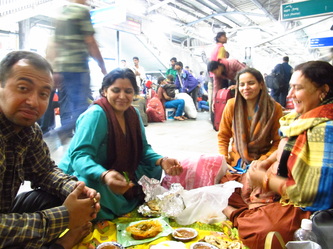
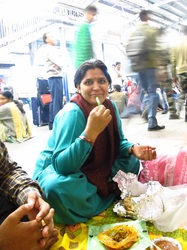
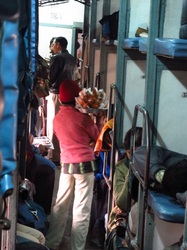
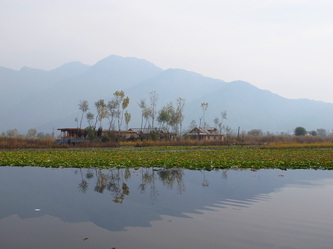
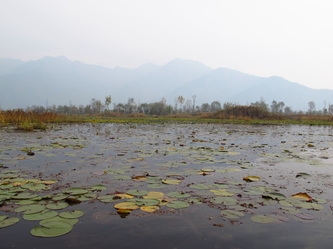
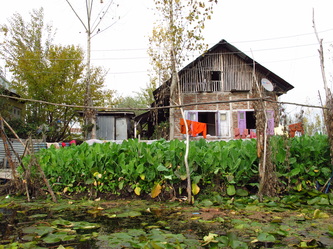
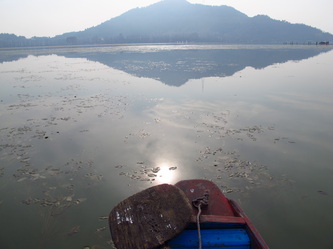
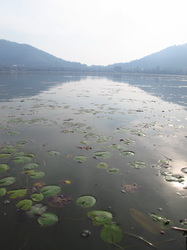
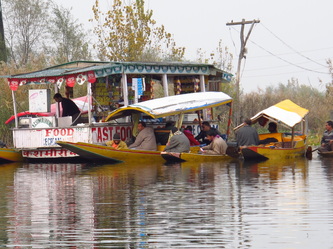

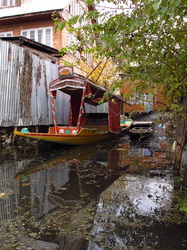

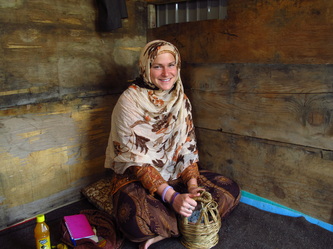
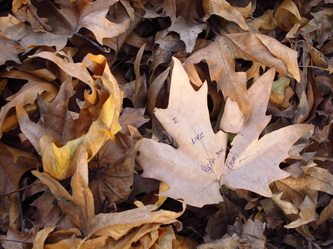



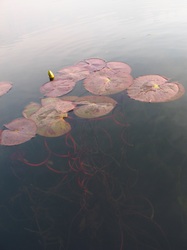
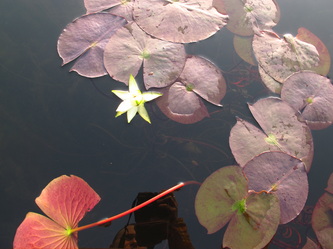
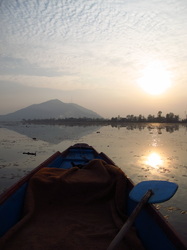


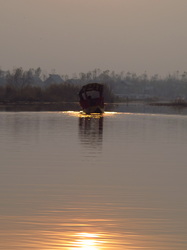

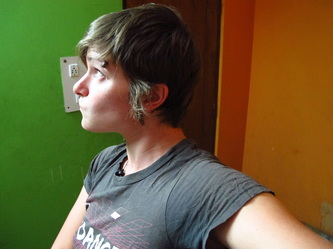
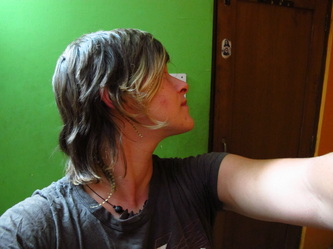
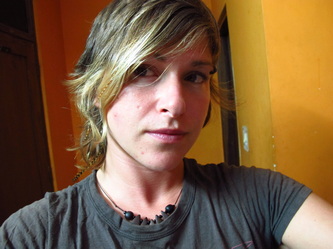
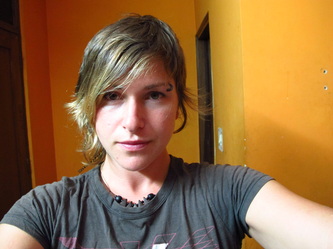
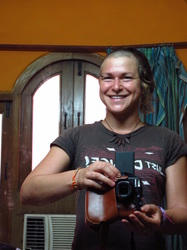
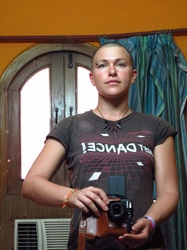
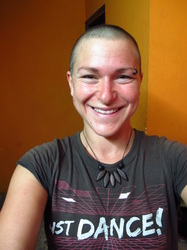
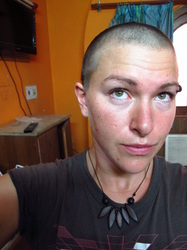
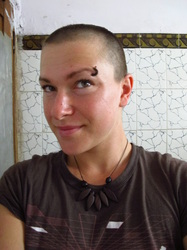
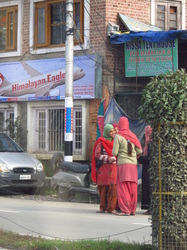
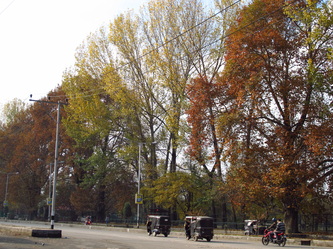
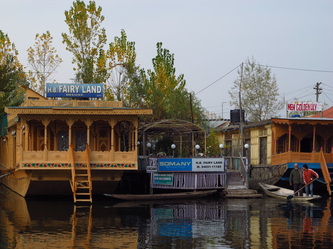
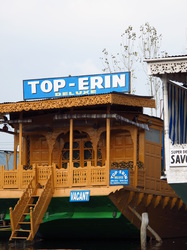
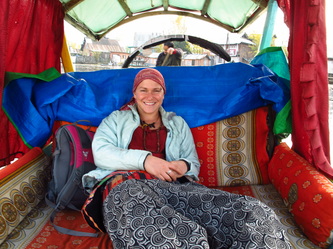
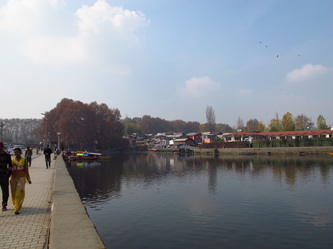
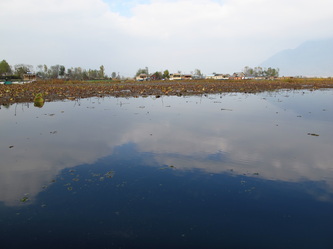
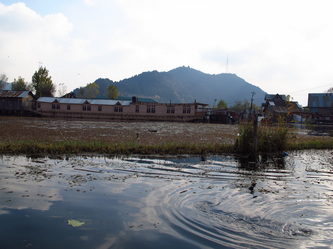
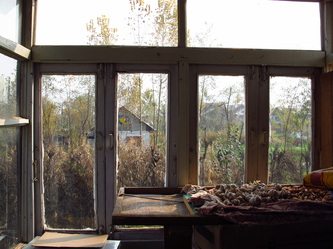

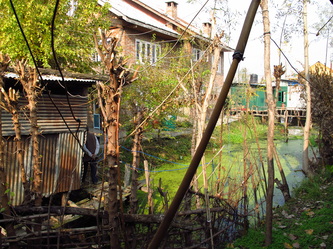
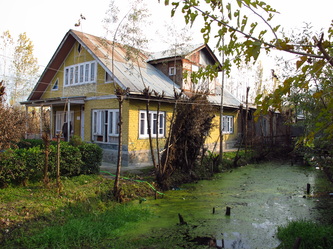
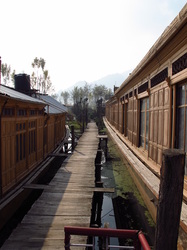

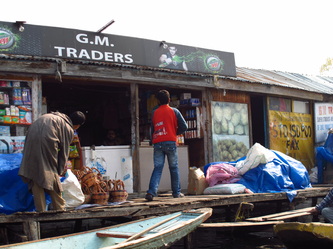
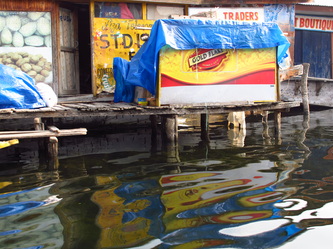
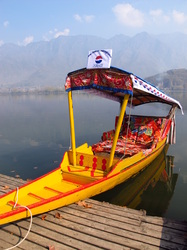
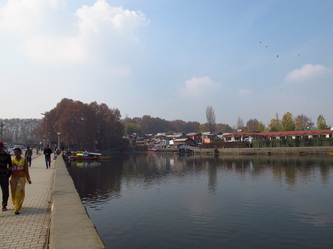
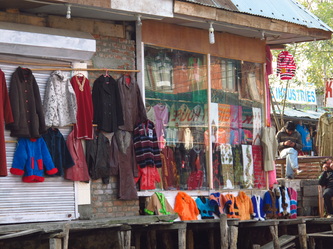
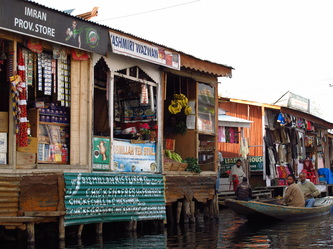
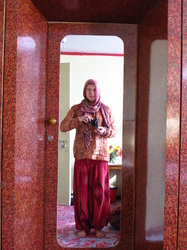
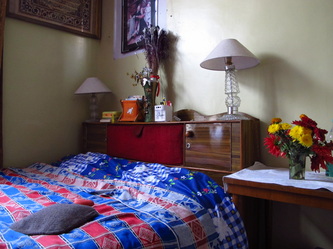
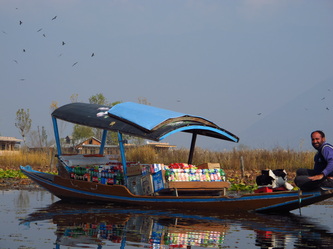
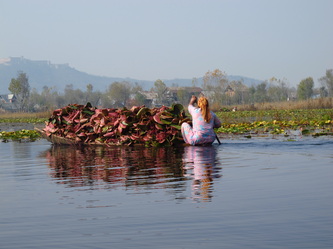
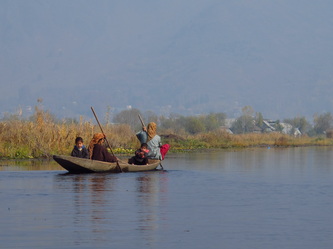
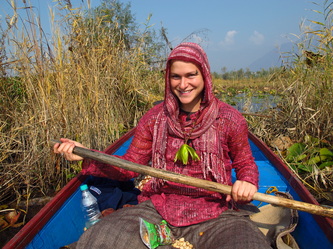
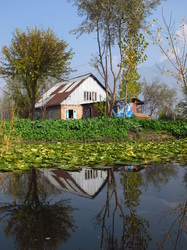
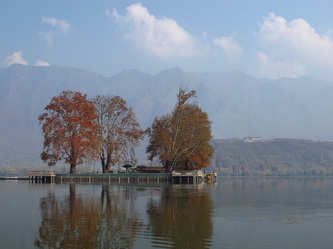
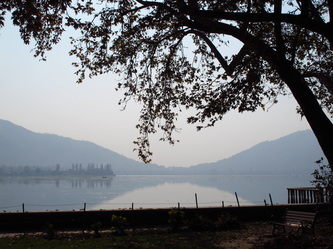
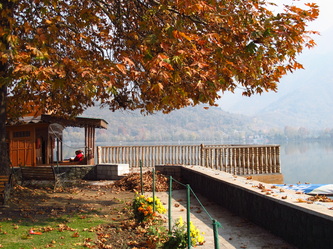
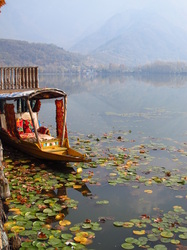
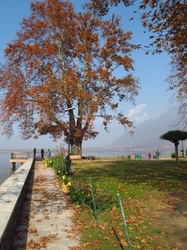
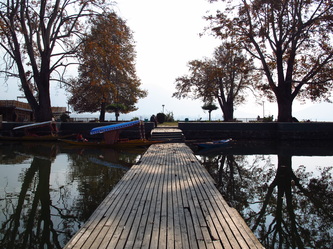
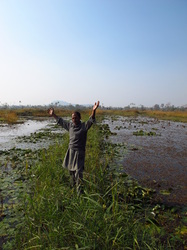
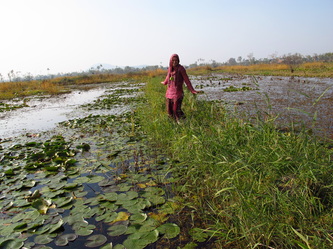

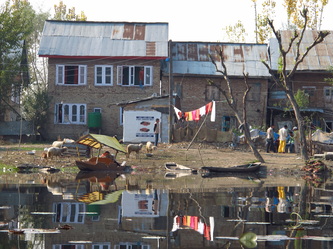
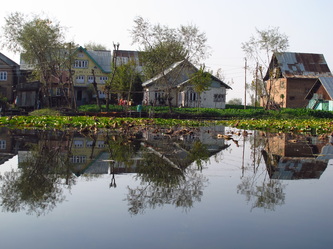

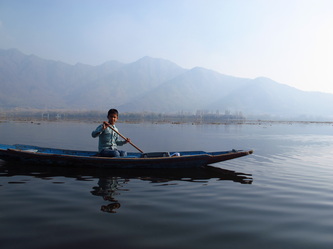
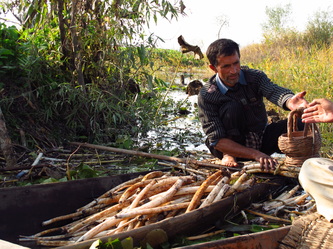
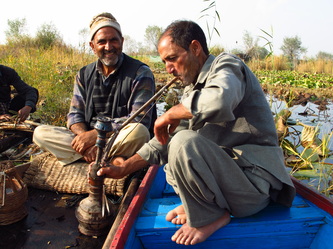
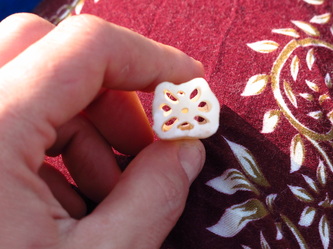
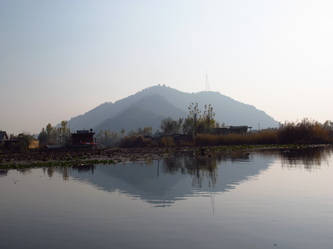
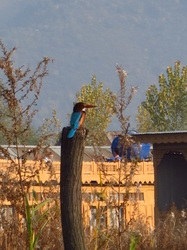
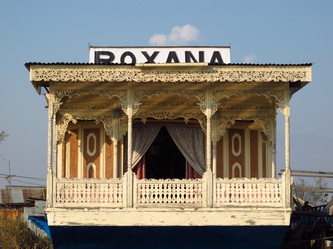
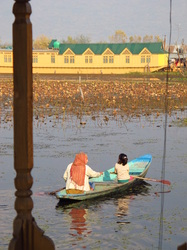
 RSS Feed
RSS Feed
